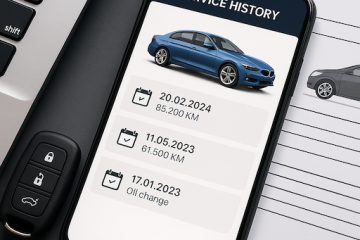How Vehicle Data is Driving Automotive Decision-Making

In today’s automotive landscape, vehicle data plays a pivotal role in empowering individuals and businesses to make informed decisions. From retail pricing and car specification data to vehicle history checks and safety recalls, the wealth of available data provides valuable insights that shape the buying, selling, and ownership experience. In this article, we will explore the diverse examples and how they contribute to better understanding, evaluation, and utilisation of vehicles.
1. List Prices and Option Availability
It provides comprehensive information on list prices and option availability, enabling buyers to make informed decisions based on their preferences and budget. This data includes pricing details for different trim levels, optional features, and packages, allowing customers to compare models and select the best fit for their needs. It is often presented in the form of a Vehicle Configurator which allows users of websites and software packages – for example Fleet Management Software to configure a vehicle for order.
2. Vehicle Specification Data and Images
Accurate vehicle specification data, combined with high-quality images, helps buyers gain a comprehensive understanding of a vehicle’s features, dimensions, and aesthetics. Detailed information about engines and performance, interior and exterior features, safety technologies, and multimedia systems assists in making well-informed purchase decisions.
3. Vehicle Valuations and Future Residual Values
Vehicle data includes valuations and future residual value estimates, providing essential guidance for buyers and sellers. Valuation tools leverage historical data, market trends, and registration volumes to estimate the current and future value of a vehicle. This information assists in determining fair prices for both buyers and sellers, facilitating transparent and efficient transactions, as well as being used extensively by lenders for underwriting purposes.
4. Vehicle History Checks
Vehicle history checks leverage data to provide crucial insights into a vehicle’s past. This data includes mileage records, ownership history, accident history, and more. A comprehensive vehicle history check helps buyers assess the condition of a used vehicle, offering peace of mind and reducing the risk of purchasing a vehicle with hidden issues.
5. DVLA Data
The DVLA Database houses vital information related to vehicle ownership, tax status, MOT history, and technical data. Accessing DVLA Data enables businesses and organisations to verify vehicle details and avoid fraud – for example vehicle cloning.
6. Recall Data
This includes information about safety recalls issued by manufacturers. This data alerts owners and prospective buyers about potential defects or safety issues in specific vehicle models.
Staying informed about recall data is essential for safety and dealers should ensure outstanding safety recalls have been completed prior to offering a used vehicle for sale. In situations where parts are not immediately available an outstanding safety recall could lead to a considerable delay in selling a used vehicle, tying up working capital and leading to additional holding costs such as interest and depreciation.
Vehicle data encompasses a wide array of information that empowers buyers, sellers, and owners to make well-informed decisions in the automotive industry.
From vehicle list prices and specifications to vehicle history, valuations, and safety recalls, the availability and utilisation of this data enhance transparency, efficiency, and safety throughout the automotive lifecycle. By harnessing the power of vehicle data, individuals and businesses can navigate the market with confidence, ensuring a rewarding and informed automotive experience.


